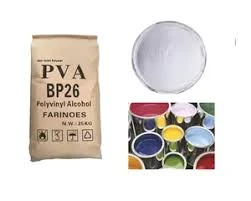Understanding RDP Powder A Multifaceted Material in Modern Applications
In recent years, the term RDP powder has gained significant attention in various industries, ranging from construction to pharmaceuticals. RDP, or Redispersible Polymer Powder, is a versatile material that offers a plethora of applications due to its unique characteristics. This article will explore the properties, production, and applications of RDP powder, illustrating why it is becoming a go-to solution in many fields.
What is RDP Powder?
RDP powder is a type of polymer that is specifically designed to be redispersible in water. When mixed with water, it forms a stable emulsion that provides improved binding properties, flexibility, and adhesion to a variety of substrates. The formulation of RDP typically involves copolymers of vinyl acetate and ethylene, among others, resulting in a fine white powder with excellent performance characteristics.
One of the most significant advantages of RDP powder lies in its ability to enhance the mechanical and thermal properties of construction materials. It is primarily used in dry-mixed construction products, such as tile adhesives, cementitious systems, plasters, and mortars. The inclusion of RDP can improve workability, reduce shrinkage, and enhance the overall durability of the final product.
Production of RDP Powder
The production of RDP powder typically involves a process known as spray drying. This process begins with the creation of an emulsion of polymer particles in water. The emulsion is then subjected to high temperatures in a spray dryer, which evaporates the water and leaves behind fine polymer powder. The result is a material that can be easily transported and stored, making it convenient for industrial use.
The quality of RDP powder can vary depending on the raw materials used, the polymerization process, and the drying techniques employed. Manufacturers often customize RDP formulations to meet specific requirements, such as enhanced adhesion, improved flexibility, or increased weather resistance. This customization is crucial in industries where performance and reliability are paramount.
rdp powder

Applications of RDP Powder
RDP powder finds extensive applications across several sectors. One of its primary uses is in the construction industry. In tile adhesives, for example, the addition of RDP enhances adhesion to various surfaces, allowing for better performance in environments subject to stress and moisture. Additionally, RDP-modified mortars and plasters exhibit reduced cracking and increased flexibility, making them ideal for both interior and exterior applications.
In the paints and coatings industry, RDP powder is utilized to improve the spreadability and adhesion of products. It aids in the formulation of more robust and durable coatings that can withstand environmental factors such as moisture, UV light, and extreme temperatures.
Furthermore, RDP powder is used in the manufacturing of nonwoven and textile applications. Its ability to create an improved binding matrix contributes to the durability and performance of coated fabrics and nonwoven textiles.
Sustainability Considerations
With the growing emphasis on sustainability, industries are seeking ways to reduce their environmental impact. The use of RDP powder can contribute to this goal by enhancing the performance of construction materials, thereby extending their lifespan and reducing the need for frequent repairs or replacements. Additionally, as RDP is manufactured in a way that minimizes waste, it aligns with eco-friendly production practices.
Conclusion
RDP powder stands out as a critical ingredient in modern industrial applications, particularly in construction and materials science. Its unique ability to enhance adhesion, flexibility, and durability makes it a popular choice for manufacturers looking to improve the performance of their products. As industries continue to innovate and prioritize sustainability, the role of RDP powder is likely to expand, paving the way for new advancements that combine performance with environmental responsibility. For those involved in manufacturing or construction, understanding the benefits and applications of RDP powder is essential in leveraging its capabilities to achieve superior results.
-
Rdp Powder: Key Considerations for Wholesalers in the Building Materials IndustryNewsJul.08,2025
-
Key Considerations for Wholesalers: Navigating the World of Hpmc - Based ProductsNewsJul.08,2025
-
Hpmc Detergent: Key Considerations for WholesalersNewsJul.08,2025
-
Key Considerations for Wholesalers: China Hpmc For Tile Adhesive, Coating Additives, Concrete Additives, and MoreNewsJul.08,2025
-
Crucial Considerations for Wholesalers: Navigating the World of Construction MaterialsNewsJul.08,2025
-
Key Considerations for Wholesalers Sourcing Additive For Cement, Additive For Concrete, Additive For Putty from Additive Manufacturer Shijiazhuang Gaocheng District Yongfeng Cellulose Co., Ltd.NewsJul.08,2025




